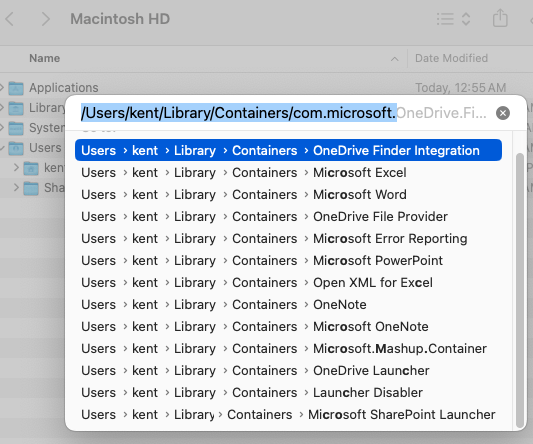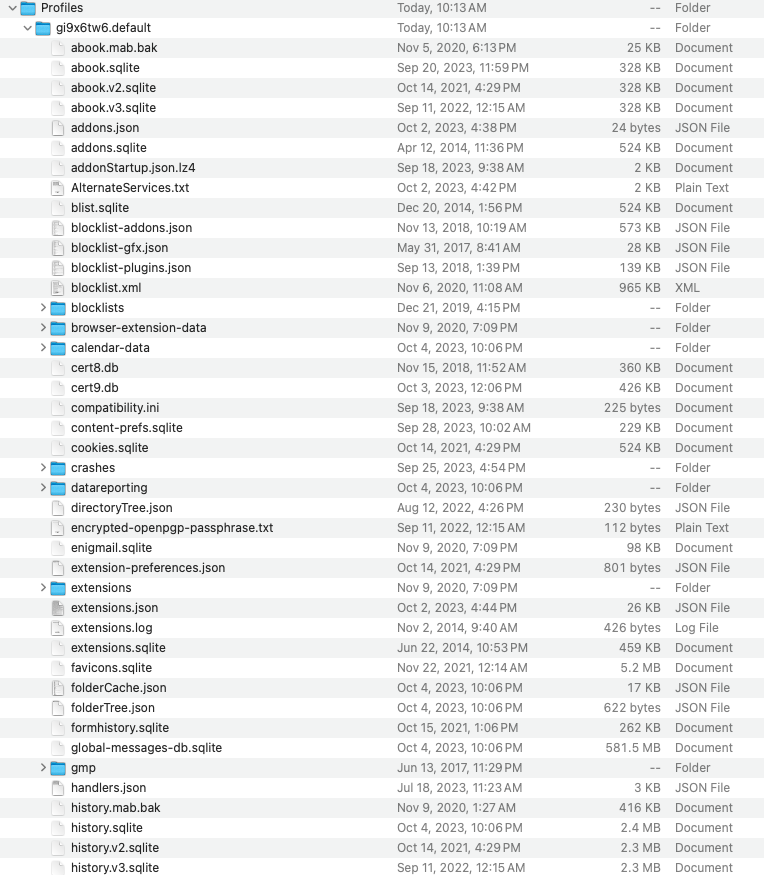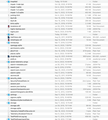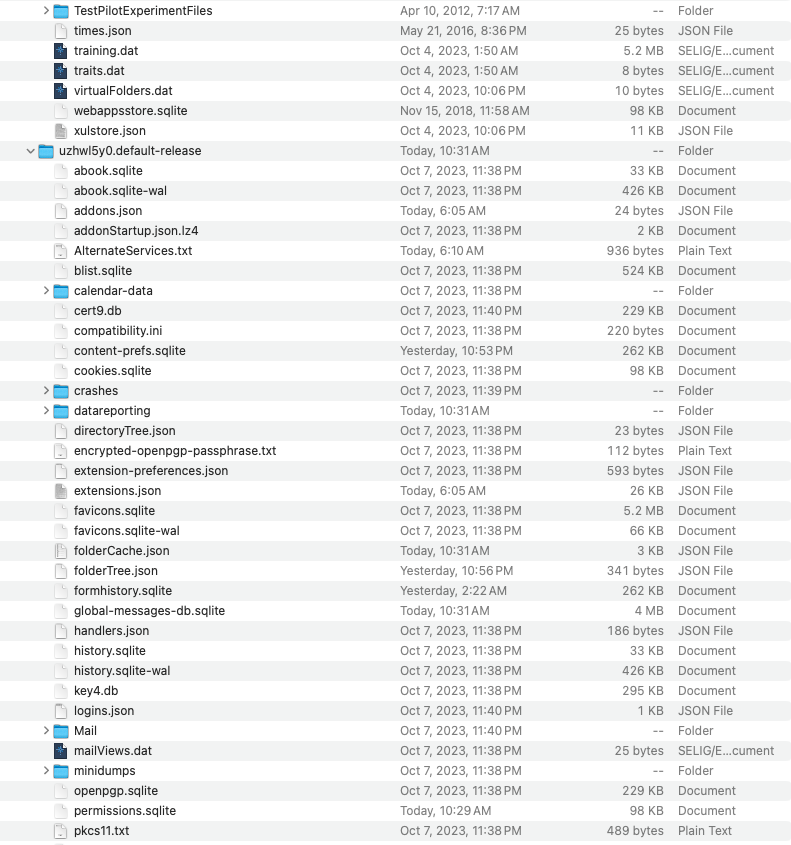
MacOS Ventura update to MacOS Sonoma caused Thunderbird to stop working - related to icloud?
When I upgraded from MacOS Ventura to MacOS Sonoma, Thunderbird stopped working. Getting it to work the first time required me to use Apple's 2 Step Verification process to create an app-specific password. After the MacOS upgrade, that process was no longer available. Apple switched to 2 Factor Authentication, which is apparently different and incompatible with 2sv. The other websites and applications on my iMac have already switched to 2fa, and I'm not sure I can have both methods active on the same computer (but I've asked, Apple, anyway).
Is there a recent change in Thunderbird that would allow me to use 2fa instead of 2sv to access Thunderbird?
I have many years worth of emails in Thunderbird that I can no longer access. I can see the directory structure, and some of the email lists, but not the content.
Thanks for the help!
Modified
All Replies (20)
I know developers on Sonoma and they haven't experienced issues.
> When I upgraded from MacOS Ventura to MacOS Sonoma, Thunderbird stopped working. Getting it to work the first time required me to use Apple's 2 Step Verification process to create an app-specific password.
2FA for what - an icloud account?
Yes, I have my Apple mail set up so that I can access it away from home on Apple Mail app on IOS 17, and at home on Thunderbird email. I use Thunderbird to manage the messages I wish to keep in its mail repository.
Your answer is encouraging. How did your developer friends setup Thunderbird to connect on Sonoma?
I might be wrong about that. I want Thunderbird to access Apple's IMAP and SNMP servers, wherever they're located. My TB repository is not on iCloud.
From what I've read, 2FA is supposed to be the better protocol, but after i provide the email password, I never see a response asking for the authentication code.
I have been using TB through a number of macOS versions and never been asked for authentication as never set one up. However, always on a floptop, not a desktop. Not that there should be any difference
So I am not sure why you have had that.
In the meantime, have you another desktop device, mac pref but even a windows PC might work, and export TB to that device?
The folder structure on the mac is the same, if I remember correctly, so be just a matter of configuring TB to find the profile on the other device once copied over and TB installed. If a PC you can use the command window to type in the full path with the profile switch, which is -P after the full commandline.
At least you can access the emails from there for the time being. And you would have a copy external to the iMac.
Maybe your 2FA is for the server account access, not sure its for starting TB
I'm not on Sonoma yet as I make it a policy not to upgrade to OSX major releases until there have been at least a couple of minor releases to fix OSX bugs and time for app developers to fix problems that don't occur till widespread release.
We've seen this kind of problem before - typically its been because TB isn't using the OSX API correctly, or is using a legacy API that ceases being supported. With 10.x to 11.x we had problems in Address Book https://bugzilla.mozilla.org/show_bug.cgi?id=1720257 and there are longstanding problems with integration with the Calendar. Typically these seem to show up with something that was working for TB developers who maybe don't use the integration, or don't use it in the same way. When more people use it, the incorrect API usage breaks .
For the address book, it was not correctly asking for permission to use the Address Book, so the permission dialog was never popped up. People previously using Address Book on 10.x were fine, but new profiles broke.
Note that these problems have often taken years to fix on TB as they don't effect any devs with the specific skills (TB and OSX) needed to fix them, (1720257 took 18 months) but there are sometimes geek-only workarounds such as that needed to get the Calendar and Address book integrations working previously.
Modified
Hi Mitra1
Interesting as I am on sonoma, been since 3rd beta release, and not had any authentication issues opening TB, as noted above I was never requested to set up any in the first place. Never knew we could/should/would have that requirement
Now using full version
I upgraded to Sonoma, and now Thunderbird won't open at all. Or actually, it seems to open (the icon bounces like it's open, and black dot next to it appears as it does for other programs in the dock that are open, but the window header never changes to show the Thunderbird. But if I right-click on the icon, I can force quit, and it appears to close. I deleted thunderbird and installed the latest version, but it's still doing the same thing. I am quite concerned because I can't access 20 years of correspondence or my email addresses. I would obviously like to get thunderbird to work, bit if I can't, is there a way to save my old emails and addresses?
Hi @kjames196
Have you checked in the security tab where you have to allow non apple apps to install? I add an image here in case you are not familiar, was trying to install a non-apple app to show the prompt that comes up, though really you should see that when attempting to install TB (aplos if you are familiar with this req't of course!!! :-0 )
See notes above to save your emails, just copy the whole of the Thunderbird directory, usually under Machintosh HD/Users/"yourusername"/Library/Thunderbird (case sensitive). If you have another device you can install there. If a Windows PC you will need to check the "net" where it goes as I forget (not used a PC for a few years now), then use -P after the command line to start Thunderbird to bring up the profile box to enable you to add the original path to the current profile (make sure you are using a copy in case of "finger trouble" :-)
Hope this helps to start.
If you still have issues starting TB with Sonoma, reply back here.
if you are not familiar to get the "Library" up select the User name in the side bar, hold mouse over Go and then press the Option key, you will see the Library name add to the pop-up list from Go
Seems cannot send you an MOV to show action!
Modified
Antony-Fox: Thanks for the response. I was able to get the newly down-loaded TB to work; I tried to shut down my computer, but it said TB was open, so it couldn't shut down. I went to my activities monitor to see if TB really was open, and it said it was using 8 kb of memory (it was the smallest item). But then it seemed to magically open. So the new version of TB seems to work, but it treated me as a new account, and didn't find my old emails or contacts. I checked the security tab you mentioned, and mine looks just like yours (except it's missing the line "Allow accessories to connect Automatically when unlocked"). But I have the "App Store and identified developers" selected. I was able to retrieve from the Time Machine the version of Thunderbird I deleted; I hoped that if I opened that, it would access my old data, but it won't open (doing the bouncing thing). I tried to follow the instructions above about accessing the old data, but my computer seems to be set up a little differently. If I go "Macintosh HD: Users: Kent" there is no Library folder. I have a library folder at the Users level, but there is not a Thunderbird folder there (though there are a lot of folders there). I will try to attach a screenshot of what I see, maybe that will help you guide me. I feel like I'm close, but not there yet.
My TB Directory structure is different in a different way. I can find MacIntosh HD/Users/<username>, but there is no /Library next level. In TB's Account Settings - Server Settings dialog, I can use Local Directory: Browse, which lets me see that it's /Users/<username>/Library/Thunderbird/Profiles/<profilename>/ImapMail/mail.cableone.net, but this doesn't seem to show my TB mail account structure. Also the only options on this view are "New Folder, Cancel, and Open" (no way to copy the structure anywhere).
There are several other directories and files at this level, but none of them show my account structure. Each of them is familiar to me as IMAP servers I've used in the past.
If I drop back a level to /Users/<username>/Library/Thunderbird/Profiles/<profilename>/Mail/Local Folders, that level contains a /Personal.sbd directory that looks more promising, but I can't make TB accept that as a new "Local Directory".
Please help.
I am unable to find any way to access and copy my "Mail" directory directly via MacOS's File Manager. I'd rather not loose the TB "Mail" contents that I have, but I really want to continue using TB as my primary IMAP processor on my iMac.
Hi to Rejohnston (1st)
I tried to send an MOV file to show what to go You need to hold the mouse over the Go in finder click once and then press Option key and the Library option will add to the menu, so then you click on this and scroll down the list to find Thunderbird
You have gone a bit to far!! Under Profiles, you will see at least one Profile name, might be just a set of characters, I usually name mine
To select that one, when you open the profile window on starting TB you need to enter that name, mine is Antony (see screen) then it will pick up the whole profile and ALL your email accounts and data, everything! Use Create and use Choose folder. This should pick up the whole profile amd add to the list
Modified
Hi Kent
Great to see some positive progress...
TB usually does treat you as new and you should see the Create profile window. Then you need to navigate to the Profile folder and check the filename its using. The Create window will go there automatically. If you want to search yourself first-
I tried to send an MOV file to show what to go You need to hold the mouse over the Go in Finder click once to drop the menu, then press the Option key and this will then add the Library option to that dropped down menu. If you click on this you will see all App Library entries, so scroll down to Thunderbird (I actually add this to the left bar for easier access as often eed to go there, if only to backup to the floptop a copy of the current profile - just in case)
Then you can see the profile name(s) in that folder and use that to create (access) your original Profile. I can send you the mov if you email me at acdp@outlook.com
Antony-Fox: I followed your instructions, and was able to find the Thunderbird file, but I am unsure what to do next. One of the profiles is labeled default, the other default-release. The default seems to have the older files in it. I'll enclose screenshots of what I see. It's not clear to me what files I need (or how to allow Thunderbird to access the needed files). I appreciate you walking me through this, I feel like I'm almost there!
to Antony-Fox: Thanks for the assist. that allowed me to see (and copy) the TB profile name and directory. One step closer.
I then tried to start TB and change the profile, but TB just tries to start and ask for my password. It does not accept my Apple Mail password, so I cancel that, then select "Account Settings - Server Settings - Local Directory", since I can find a "Profile" option. "Local Directory" seems to contain a pointer to the right IMAP mail directory.
Do I need to re-download and start TB a different way to be able to point to something different (or maybe the same)?
Hi Kent
Best way to find which folder is the right one is to "right click" the folder name and the "Get Info" The biggest folder size will most prob be your main one. In each folder there is also a Mail folder, open this and the one that has the most detail for email accounts (hopefully the one you identified under the larger profile ) is going to be your main Profile
If you are based in the UK or this side of the Atlanatic, we could have a fone call.
Hi Rej (apols for the shortening!!)
Did you set a PW to open TB? Never aware one could. I doubt its anything toi do with your Apple Mail, might be linked to your AppleID, but even then dont see why. Very odd.
Regarding profile, maybe read thru the notes for Kent as well for that part.
If you install a complete new version i suggest you remove the whole thunderbird directory from the Applications folder first. It will prompt for a new account, but if you start it with -P swtich you will get the profile window to create. Then follow instructions above to use the current profile, the one you have hopefully identified as your main one.
If you are not keen to remove the current TB in applications, you can install elsewhere to test, then move it accross, but still remove the old install first
As with Kent, I am in the UK and happy to walk thru via fone if that helps, or skype or whatever if you are elsewhere
Hi RJ
Meant to note - the Local folders will not have your main email accounts as this is just a repository really, Though it will be part of the main profile. The main accounts, ones that connect to a remote server (TB is a Client app), are under the Mail directory in the Profiles one
Kent/RJ
Sorry - a correction regarding the Mail folders and location of your main accounts
These are under IMAPMAIL not Mail as noted above.
I only use IMAP so not sure if tehre is a separate fodler for POP accounts
Local folders keeps your Archives there if you wish to, but all messages here are not on a remote server, only on your device (being a laptop or desktop, not talking about mobiles and such)
Modified
Antony-Fox: I found the files. When I opened the "sent" file, it gave me a simple text document that seemed to be all the emails I sent (so this is one of the main things I'm looking for). When I tried to open the "Sent.msf" file (which is 4x larger at 9.3 MBs), my Mac couldn't open it. It asked for an app to open it, but when I tried to use Thunderbird, it was greyed out, so it was unavailable.
When I opened Thunderbird and imported from there, it seemed to work! I may not have gotten everything (I had saved some emails by putting them in dedicated folders, "receipts" e.g., and I don't see those folders), but I am light years ahead of where I was. Thank you for your patient explanations! You have made my day!
-Kent
Modified








